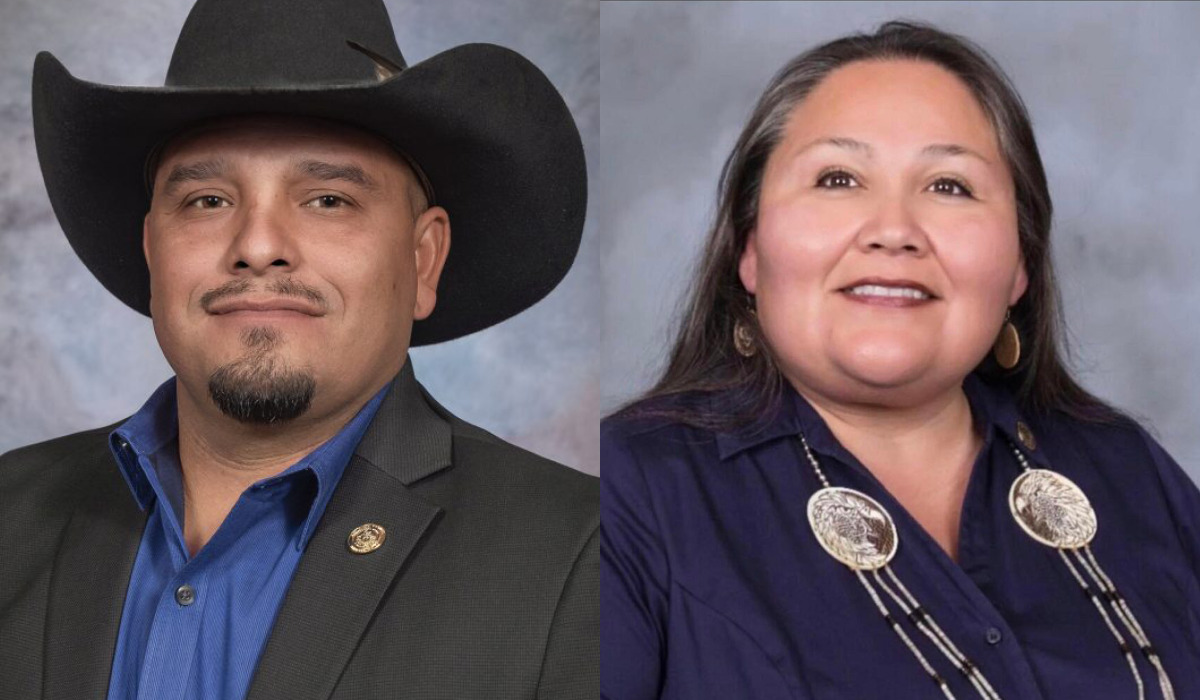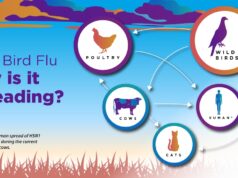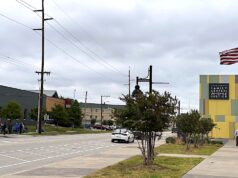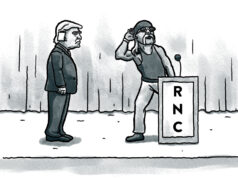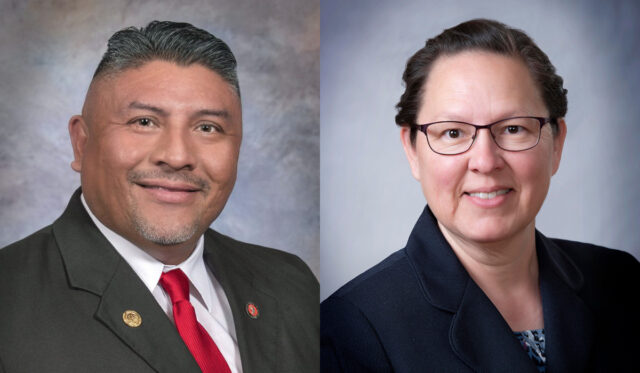
Elected speaker of the Muscogee Nation Tribal Council two years ago while only in his first term, William Lowe faces challenger Robyn Whitecloud, who worked nearly 20 years for the Tribal Council, in the Nov. 4 general election for the Okmulgee District’s Seat A.
Lowe and Whitecloud advanced to the general election after being the top two vote getters in the Sept. 16 primary election.
The margin between the two was close, with Lowe receiving 37.8 percent of the vote and Whitecloud garnering 34.39 percent. Former Rep. James Jennings finished behind Lowe and Whitecloud with 27.8 percent support. Since no one received a majority, Lowe and Whitecloud advanced to the tribe’s 2023 general election ballot.
The Okmulgee District includes the communities of Okmulgee, Henryetta and Beggs, but all registered voters in the Muscogee (Creek) Nation are allowed to vote in each tribal council race. The only other race on this year’s general election ballot is between incumbent Tribal Council Rep. Joseph Hicks and challenger Dode Barnett for the Creek District’s Seat A.
Absentee ballots for the Nov. 4 general election have already been mailed out, and early voting is set from 7 a.m. to 7 p.m. on Nov. 1 and Nov. 2. The registration deadline for in-person voting is 5 p.m. Tuesday, Oct. 24.
Both William Lowe and Robyn Whitecloud agreed to interviews with NonDoc for this article previewing the Nov. 4 election. Each participated in a recent debate hosted on YouTube by Mvskoke Media, the tribe’s independent news publication.
Okmulgee District Seat A candidate bios, backgrounds
Lowe, 49, won his first election in 2019 by three votes. He was elected speaker of the Muscogee Nation Tribal Council by the 15 other council members in January 2022. He served nearly a decade in the U.S. Marine Corps from September 1993 to May 2002. After leaving the military, he earned a bachelor’s degree in business administration from Bacone College and a master of business administration degree from Grand Canyon University.
Lowe, of Okmulgee, owns WilLowe Consulting, LLC, which he started in 2011, and he is also a board member on The National Center for American Indian Enterprise Development. He posts updates on his campaign on Facebook page.
If re-elected, Lowe said he hopes to be continue as speaker of the Tribal Council. He previously served as chairman of the council’s Business, Finance & Justice Committee. He would be willing to serve in that post again if the council chooses another speaker next year, he said.
Lowe said he has always liked public service, going back to his days as a teenager in school and at church.
“Doing these volunteer things as a teenager, it really helped me going to the Marines and learning more about leadership and serving my country,” he said. “I would say 98 percent of the time (as a council member) you’re helping our citizens. For me, (I like) to be able to help our citizens pass through some of the plateaus that they’re running into or help them get the assistance they need. Plus, I love representing our tribe not only on a state basis — a reservation basis — but nationally and internationally.”
Whitecloud, 54, earned a bachelor’s degree from Oklahoma State University, and she has more than 30 years of experience in accounting. She said she worked 19 years for the Muscogee Nation in different capacities and worked eight years as a finance officer for the Tribal Council. She now works for a bank in Tulsa. She also uses Facebook to post updates about her campaign activities.
“I just felt like we needed someone that’s going to get in there and fight for positive change,” she said. “I’m a no-nonsense kind of gal, and I feel like I can get in there, and I know how to get things done, and I know how to take care of business. I’m not going to be blowing smoke in your face for 20 minutes and not really say anything.”
Whitecloud said she wants to take a look at the council’s finances and see if funds are properly utilized. She said she also supports diversifying Muscogee Nation funding sources, saying the tribe should not always depend on casino gaming.
Economic development, diversity noted as priorities
Lowe said the Muscogee Nation is benefiting from increased revenue from its casinos and is using much of that money for services to citizens.
“Our health department has become pretty much self-sustainable,” he said. “They no longer need the 5 percent tribal assistance that we gave them through their annual budget.”
Lowe said he would like to see the Muscogee Nation follow the example of the Cherokee and Chickasaw nations in developing strong business platforms to stimulate more jobs for citizens.
RELATED
Seeking old seat on Muscogee Nation Council, ‘outspoken’ Dode Barnett challenges Joseph Hicks by Joe Tomlinson
“One of these days, we’ll get there. It just takes a lot of time,” he said. “Our business enterprises, we hope one day that we find that niche that’s going to make us billions of dollars.”
Lowe said he is encouraged by the Muscogee Nation’s new Department of Commerce, which is being led by acting Secretary of Commerce Guy Barker.
Whitecloud said the Tribal Council should be doing more to attract businesses.
“We need to have more diversified economic development,” she said. “I know there’s no quick fixes or easy answers, but we need to get in and work with different departments (…) and put some heads together and figure out some other avenues where we can create jobs for our people.”
Whitecloud said she wants to find ways to make affordable housing available for elders who are raising grandchildren. Rental assistance is available for the elderly, but it often is lacking, she said.
“You still have to come up with affordable housing because the citizens are responsible for the rest,” Whitecloud said. “It seems lately rent and housing are going through the roof. Everything’s so expensive.”
Lowe said he wants the tribe to purchase more homes to be used for elder housing.
Both disappointed by Gov. Stitt’s relations with tribal nations
Lowe said he is frustrated with Oklahoma Gov. Kevin Stitt’s demeanor toward tribal nations, especially in his attitude toward negotiating tribal compacts in the wake of the McGirt v. Oklahoma U.S. Supreme Court decision, which affirmed that the Muscogee Nation Reservation had never been disestablished by Congress.
He said Oklahoma’s legislators have been more open toward finding solutions to compact issues, which he said may lead to scenarios where the Muscogee Nation Tribal Council and other tribal legislatures have increased discussions with their counterparts in the Oklahoma Legislature.
“If I win my election, I hope to take more time to meet with our local and state legislators,” Lowe said.
Whitecloud said she is also disappointed with Stitt’s attitude toward seeking solutions with tribes.
“I know that relationship is really strained right now,” she said. “I think that the state needs to work with the tribes that are here in Oklahoma definitely more than what they are doing. We are sovereign and they need to recognize that and work with us. We have to work together.”
Lowe, Whitecloud not in favor of full Freedmen citizenship
Lowe and Whitecloud both said the question surrounding tribal citizenship for Muscogee Freedmen — the descendants of freed Muscogee slaves — may have to be decided by a vote of the people. Both said they support existing language in the Muscogee Nation Constitution that limits citizenship to those who have tribal blood lineage. They reiterated their positions during the debate sponsored by Myskoke Media on Friday.
In a Sept. 27 decision, Muscogee Nation District Court Judge Danette Mouser ruled that the Muscogee Nation Citizenship Board erred when denying a pair of applications from Freedmen seeking citizenship within the tribe. Mouser said the board’s decision conflicted with the Treaty of 1866, which stipulates that Freedmen “shall have and enjoy all the rights and privileges of native citizens.”
In 1979, Muscogee Nation voters adopted a new constitution that restricted tribal citizenship to descendants of people listed as “Indian by blood” on the Dawes Rolls, functionally disenrolling Freedmen citizens from the tribe. For decades, Freedmen descendants have advocated for renewed citizenship in the Muscogee Nation, which was forcibly relocated here in the 19th century by the U.S. government.
“The court finds that the actions of the board in denying plaintiffs’ citizenship applications and appeals were contrary to law, specifically the Treaty of 1866 and its required inclusion of the Creek Freedmen and their lineal descendants within the citizenship of the Muscogee (Creek) Nation,” Mouser wrote in her order.
The Muscogee Nation Citizenship Board appealed Mouser’s ruling to the Muscogee Nation Supreme Court and filed a motion to stay enforcement of order, which was granted Oct. 2.
“The order and opinion of the District Court represents a significant change in citizenship procedures for the nation. Requiring the appellant to immediately comply with the District Court’s ruling while an appeal is pending, and before this court has issued its final ruling on the matter, could cause undue harm to the appellant and to the respondents, as well as to any other individuals who may choose to apply for citizenship on the basis of the lower court’s ruling,” the order reads. “As such, this court grants the appellant’s motion to stay enforcement pending final adjudication on the matter.”
Lowe said that, as a council member, he took an oath to uphold the Muscogee Nation Constitution.
“Our constitution does say citizen by blood, and that’s where I stand, and that’s where I will always stand until there’s something that changes in our constitution where they’re put in there as amended citizens,” he said.
Whitecloud also said the Muscogee Nation Constitution must be upheld and that it should be up to citizens to decide if the constitution’s language should be changed.
“If you want to be involved as a Muscogee-Creek citizen, everyone has to prove their lineage by blood,” she said. “I hear more about our education and our health care issues than I do the Freedmen issue.”
(Clarification: This article was updated at 12:05 p.m. Monday, Oct. 23, to clarify the appellant in a Muscogee Nation District Court case.)










